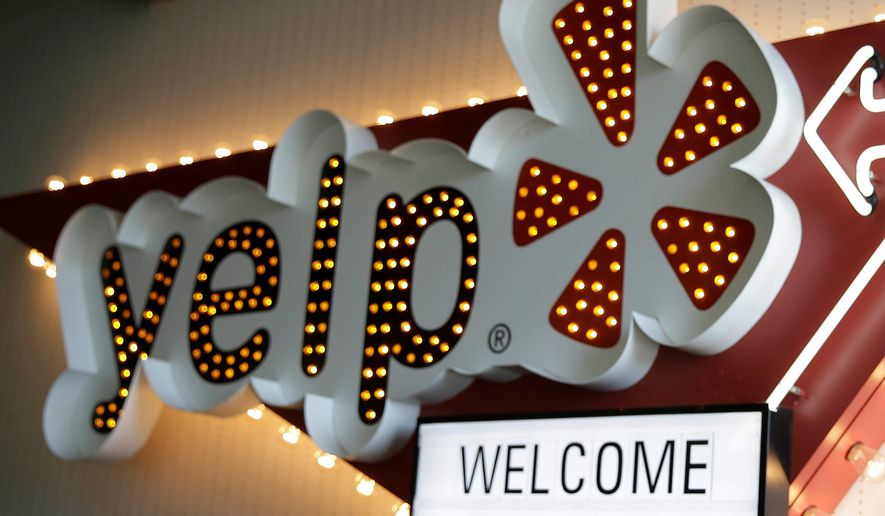Internet heavyweights including Facebook, Google and Twitter are taking the side of popular review website Yelp in a Virginia Supreme Court case to be heard Tuesday that will consider whether commenters who anonymously criticized a prominent local carpet-cleaning business must be identified.
The case, scheduled to be heard in Richmond, has drawn national headlines and is being closely watched by First Amendment advocates as well as prominent Internet companies for the impact it could have on online speech.
Tuesday’s arguments come after an appeals court in January ordered Yelp to turn over the names of seven reviewers who anonymously criticized Virginia-based Hadeed Carpet Cleaning. Business owner Joe Hadeed sought to unmask the commenters after suspecting that the negative reviews left on Yelp were not made by real customers.
In a “friend of the court” brief, Facebook and six other online companies warn that upholding the decision could have dire consequences for free speech. The companies represent their services as having “transformed and elevated this country’s long tradition of town halls, private assemblies, robust debate, and anonymous complaints by bringing it online and making it more accessible to people everywhere.”
“The right to speak anonymously would be greatly diminished if those who objected to anonymous speech could readily employ civil discovery to unmask a speaker,” the brief states.
The companies also argue that, aside from free speech issues, the court decision “erroneously expanded the Virginia courts’ subpoena power” by seeking to secure records from Yelp, a California-based company that does not have a physical presence in Virginia, where a subpoena would be issued.
SEE ALSO: Court rules Yelp must ID negative reviewers; no constitutional protection
In addition to the technology companies, which also included TripAdvisor, Pinterest, Medium and Automattic Inc., the San Francisco-based Electronic Frontier Foundation filed its own amicus brief to say that the lower appeals’ court ruling in the case “places the court out of step with the vast weight of authority.”
“Courts around the country have agreed that, at a minimum, plaintiffs must make an evidentiary showing demonstrating a compelling need for the information in order to unmask an anonymous speaker,” EFF attorneys wrote. “However, the Court of Appeals did not require Hadeed to demonstrate with sufficient evidence that it can meet that standard here in order to discover the identities of the authors of the Yelp reviews Hadeed alleges are defamatory.”
Mr. Hadeed’s attorney, Raighne C. Delaney, said he doesn’t think the fact that other online companies have weighed in on the case “will make one bit of difference.”
He noted that the length of time scheduled for the case, 40 minutes rather than the 30 minutes assigned to all other cases that will be heard Tuesday, could indicate that judges have an interest in hearing more nuanced arguments on the case.
“The fact that it’s 40 minutes tells you there is something they want to talk about — or maybe they just like the case,” Mr. Delaney said.
Hadeed Carpet advertises heavily throughout the D.C. area, including in The Washington Times.
An Alexandria judge and the Virginia Court of Appeals previously sided with Mr. Hadeed, ruling that the comments were not protected First Amendment opinions if, in fact, the Yelp users were not customers and thus were making false claims.
In prior arguments, Yelp’s attorneys cited legal standards established across the country for identifying people who post anonymous comments and said Mr. Hadeed had not met those requirements. But the court noted that the state has its own standards for unmasking those who make potentially libelous anonymous comments online and agreed with the Circuit Court for the City of Alexandria, which said those standards had been met.
Virginia lawmakers adopted their unmasking standard in 2002, which states in part that the person seeking to subpoena an Internet user’s identity must show that communications “are or may be tortious or illegal” or that the person requesting the subpoena “has a legitimate, good faith basis to contend that such party is the victim of conduct actionable in the jurisdiction where the suit was filed.”
In its ruling, the appeals court wrote that it would not declare the law unconstitutional and therefore considered it in the decision.
Paul Alan Levy, an attorney who represented Yelp and works with the consumer advocacy group Public Citizen, notes that courts in 11 other states and throughout the federal system have adopted a standard of evidentiary showing that requires plaintiffs to produce evidence supporting each element of a claim before stripping away anonymity in such cases.
“This is the eighth state in which I’ve done an appeals argument on this issue,” Mr. Levy said. “I think most judges, when they think about our approach, decide it is the right one. I’m hopeful the Virginia Supreme Court will see it that way as well.”
• Andrea Noble can be reached at anoble@washingtontimes.com.




Please read our comment policy before commenting.